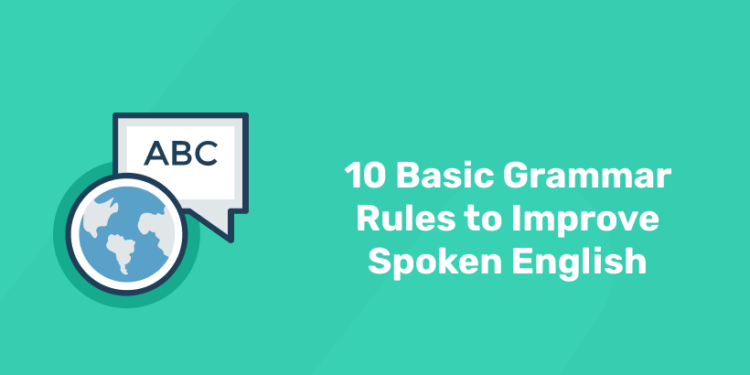Table of Contents
Key Takeaways:
- Tense consistency clarifies when actions happen.
- Prepositions and articles make your sentences precise and natural.
- Subject-verb agreement ensures grammatical correctness in every sentence.
- Understanding homophones prevents confusion in communication.
- Practice and regular speaking build fluency alongside grammar knowledge.
Introduction
Learning to communicate effectively in English is like unlocking a door to countless opportunities—be it landing your dream job, gaining confidence in social settings, or simply expressing yourself clearly. English is not just a language; it’s a global connector that brings people and ideas together. Whether talking to colleagues, making new friends, or presenting your ideas, speaking fluent and correct English can profoundly impact your personal and professional life.
Many learners struggle with the fear of making mistakes or getting stuck on grammar rules. The trick is to focus on mastering key grammar essentials, which can make your speech smoother and more natural. Instead of memorizing endless rules, try to understand these basics deeply and practice them often. This guide walks you through the 10 must-know grammar rules that form the foundation of strong spoken English. Let’s transform your learning experience into an enjoyable and effective journey together.
1. Master the Use of Tenses
1: Which of the sentences below is grammatically correct?
Tenses are the grammar tools that help speakers tell when something happens—whether an action is taking place now, happened before, or will happen later. English uses three main tenses: present, past, and future. Each of these has simple, continuous, perfect, and perfect continuous forms that describe ongoing actions, completed actions, or actions that span a period of time.
Why Tenses Matter in Speaking
Using the right tense ensures your message is clear. Incorrect tense usage can confuse listeners about timing or meaning. For example, mixing tenses incorrectly as in, “I was going for shopping and buy fruits,” muddles the timeline and clarity.
Practical Tips
- Present Simple: Use for habits and general truths. (“I go to the gym every day.”)
- Past Simple: Use for completed actions. (“She visited New York last year.”)
- Future Simple: Express future intentions. (“We will meet tomorrow.”)
- Present Continuous: Actions happening right now or future plans. (“I am studying English.” / “I am meeting him tonight.”)
- Past Continuous: Actions in progress at a specific past time. (“They were watching a movie at 8 PM.”)
- Perfect Tenses: Describe completed actions with present relevance or duration (e.g., “I have lived here for five years”).
Exercise
Try describing your daily routine, yesterday’s activities, and plans for tomorrow using different tenses to build familiarity.
Also Read: Tenses in English with Examples
Spoken English Course for Guaranteed Confidence and Career Growth
Spoken English Course by Entri App: Enhance your communication skills, gain certification, and boost your career with confidence.
Join Now!2. Use Prepositions Correctly
Prepositions are small but mighty words that show relationships between things: location, time, direction, cause, and more. Common prepositions include in, on, at, by, for, with, about, from.
Why Prepositions Can Be Confusing
English prepositions don’t always follow strict rules and often depend on phrases or context. For example, “at home,” “in the house,” and “on the street” all show location but are used differently.
Quick Tips for Common Prepositions
- In: Used for enclosed spaces or periods (“in the room,” “in 2025”).
- On: Used for surfaces and days/dates (“on the table,” “on Monday”).
- At: Specific points in time or place (“at 5 PM,” “at the station”).
- For: Indicating purpose or duration (“for two hours,” “a gift for you”).
Examples
- Manu is fond of cricket.
- She lives with her grandmother.
- The sky is above our heads.
Practice Tip
Learn prepositions within phrases and context—this helps to remember the correct usage better than isolated learning.
You might also like: Use of Prepositions in English
3. Understand Adjective and Adverb Usage
Adjectives and adverbs enrich your speech by adding details and describing people, places, actions, or qualities.
What Are Adjectives and How to Use Them
Adjectives describe nouns or pronouns, such as color, size, quantity, or quality. Example: a beautiful day, few apples.
Types of Adjectives:
- Proper adjectives: Indian, American
- Quality adjectives: Good, bad, noble
- Quantity adjectives: Much, many, few
- Demonstrative adjectives: This, those
- Possessive adjectives: My, your, their
Also read: What Are Adjectives? Definition, Types, and Examples
Adverbs: Description for Actions and Qualities
Adverbs modify verbs, adjectives, or other adverbs. They explain how, when, where, or to what extent something happens.
Examples:
- Rahul shouted loudly.
- She runs quickly.
- They arrived here yesterday.
Tip for Mastery
Notice adverb placement—usually after the main verb or before adjectives, e.g., “He is very smart.”
You might also like: What is an Adverb Phrase? Definition and Meaning
| Free PDFs for download | |
4. Perfect Your Subject-Verb Agreement
One of the most common errors is mismatching subjects and verbs. Remember: singular subjects take singular verbs, and plural subjects take plural verbs.
Common Mistakes
- Incorrect: He run fast.
- Correct: He runs fast.
When using compound subjects joined by and, or, or nor, be mindful of agreement:
- Sarah and John are friends.
- Either Mark or Tom is coming.
Special Cases with “I” and “You”
- “I” always takes singular verb form, but sentences often expect plural usage in meaning, e.g., “I am ready,” “You are here.”
Practice
Try creating sentences with different singular and plural subjects to internalize this rule.
Spoken English Course for Guaranteed Confidence and Career Growth
Spoken English Course by Entri App: Enhance your communication skills, gain certification, and boost your career with confidence.
Join Now!5. Get Comfortable with Articles
Articles are tiny but powerful words: a, an, and the that specify nouns.
When to Use Each Article
- “a”: Before words starting with a consonant sound. (“a car,” “a university”)
- “an”: Before words beginning with a vowel sound. (“an apple,” “an hour”)
- “the”: Use when referring to something specific or already known to the listener. (“the book on the table”).
Common Challenges
Deciding when not to use an article—e.g., with uncountable nouns or plural nouns in general statements (“Water is essential,” no article needed).
Also read: Articles in English – Definition, Types, and Examples
6. Conquer the Basics of Sentence Structure
Effective communication depends on clear sentence construction. The most straightforward structure is:
Subject + Verb + Object.
Why Keep it Simple?
Long or complicated sentences confuse listeners. Breaking thoughts into smaller statements helps clarity.
Example:
Instead of: “I was going to the market and I had bought some fruits and vegetables,” say:
- I went to the market.
- I bought fruits and vegetables.
People also read: Sentence in English Grammar – Structure, Types, Examples
7. Differentiate the Uses of Homophones
Homophones are tricky because they sound the same but mean different things and are spelled differently. Confusing these weakens your message.
Examples to Watch for:
- Their / There / They’re
- Your / You’re
- It’s / Its
- Here / Hear
Learning the meanings and spellings will raise your speaking and writing accuracy.
8. Use Proper Verb Forms in Past and Future Tenses
English verbs are either regular or irregular. Regular verbs form the past tense by adding “-ed,” but irregular verbs change differently.
Examples:
- Regular: Play → Played → Played
- Irregular: Go → Went → Gone
Knowing verb forms helps you speak about past events correctly.
Also read: What is a Verb? Types of Verbs with Examples
9. Incorporate Conjunctions for Better Flow
Conjunctions join ideas smoothly, helping your speech sound natural and connected. Common conjunctions are and, but, or, because.
Examples:
- She likes tea and coffee.
- It’s raining, but we will go out.
- Would you like cake or ice cream?
- I stayed home because I was tired.
You might also ask: Commonly Used Conjunctions in English Grammar
10. Practice Using Modifiers: Adverbs and Adjectives
Modifiers bring vibrancy to your language by describing how, when, where, or what kind of action or thing.
Example:
- Instead of saying “He speaks,” say “He speaks clearly.”
Use a variety of modifiers to add precision and interest to your conversations.
Enhance Your Spoken English with Entri
English fluency opens doors to personal and professional success. Entri’s spoken English courses offer live mentorship, personalized feedback, and practical exercises focused on real-world language use. Whether starting out or refining your skills, Entri helps you speak confidently and clearly.
Explore the Spoken English Course and boost your communication skills further with the Career Up-skill Program. These programs help you master grammar, vocabulary, and conversational fluency—all tailored for your success.
Conclusion
Mastering essential grammar rules is not about perfection but about becoming a clear and confident communicator. With focus, practice, and the right guidance, you can speak English naturally and effectively. Entri’s expert-led courses provide the support and resources to make your learning journey enjoyable and rewarding. Take the first step today—enroll and watch your English skills soar. Your confident voice is just around the corner.
Spoken English Course for Guaranteed Confidence and Career Growth
Spoken English Course by Entri App: Enhance your communication skills, gain certification, and boost your career with confidence.
Join Now!Frequently Asked Questions
How long does it take to learn basic English grammar?
Most learners can grasp fundamentals in a few months with daily practice, but regular use is key to mastery.
Is it okay to make mistakes while practicing spoken English?
Yes! Mistakes are vital learning moments. Don’t be afraid to speak and learn from corrections.
Can focusing on grammar alone improve my speaking?
Grammar is essential but must be combined with listening and speaking practice.
What resources can help me improve English grammar?
Entri offers structured courses blending grammar and conversation skills for effective learning.
How important is pronunciation along with grammar?
Very important—it ensures listeners understand your message and boosts your confidence.















